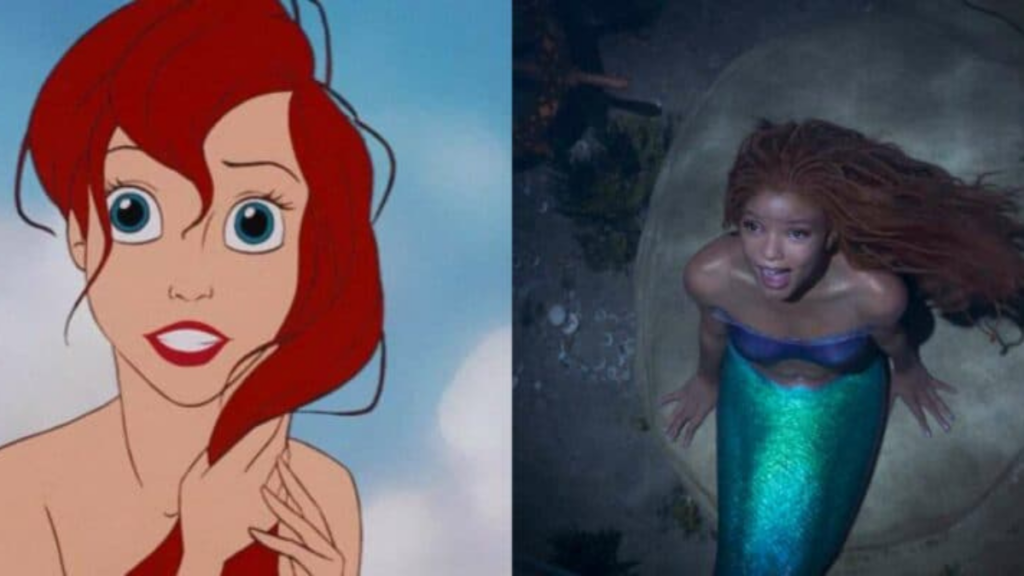Last updated on June 27th, 2023 at 04:56 pm
In a notable shift from the original 1989 animated “The Little Mermaid,” Disney’s 2023 live-action remake reimagines the dynamics of the iconic scene where Ariel attempts to win a kiss from Prince Eric. While the original presents Ariel as essentially passive in this romantic scene, the modern rendition empowers her to articulate her desires. The change reflects evolving societal attitudes toward sexual consent post-MeToo, with Sebastian’s lyrics altered to: “Use your words, boy, and ask her.” However, in this bold shift from the original script, Ariel, portrayed by pop singer Halle Bailey, completely forgets that she needs a kiss to remain human.
While this new narrative angle might have been an attempt to uphold feminist ideals by avoiding depicting a voiceless Ariel yearning for a man, it seems to strip the character of her goal, reducing her to a lackluster figure lacking direction or agency. It’s apparent that the intended audience for the film is no longer children but rather millennial women who loved the original film, who now find it problematic due to heterocentrism, whiteness, and other isms. Disney’s live-action remakes seem to be trying to cater to this audience’s progressive sensibilities while acknowledging the stereotypes and cultural mishandling in older cartoons, which are flagged with a warning on the Disney+ streaming service.
“Little Mermaid,” with its hints of consent culture, references to environmental damage, and a black actress in a traditionally white role, is part of Disney’s quest for a more inclusive future. This direction is visible in other works, such as the 2022 film “Lightyear,” which featured a subtle lesbian kiss, and “Frozen 2,” which carries an anti-colonialist message. The drive towards progressive nostalgia appears to be a significant factor behind today’s most contentious entertainment, from reboots to edited editions of works from authors like Roald Dahl and R.L. Stine.
However, Disney’s quest for inclusivity seems to have compromised the watchability of the new “Little Mermaid.” The film is described as “bloated and muted,” with memorable elements like musical fish and whispering moray eels missing. Even though Bailey’s singing performance was widely praised, the question arises whether the emphasis should only be on representing diversity. The Guardian suggests that the film’s purpose should be “to allow all children—not just the white ones—to see themselves as Magic Kingdom denizens.”
Hollywood’s apparent focus on delivering morally correct conclusions rather than pure entertainment seems to be causing discomfort among audiences. This is not a rejection of diversity but more likely a resistance to moral lessons being imposed on audiences who just want to enjoy the show. The increasing belief that art is inherently political and mainstream entertainment must carry a moral or cultural message, continues to impact how films are received and critiqued. In the case of the “Little Mermaid,” it seems that in trying to be politically correct and inclusive, the essence of Ariel’s character—a young woman striving for independence and facing the consequences of her choices—has been lost. The new narrative seems to treat the grown-up audience of the original film in a patronizing way, forgetting that the essence of storytelling lies not only in delivering important messages but also in creating engaging, moving, or funny stories.
